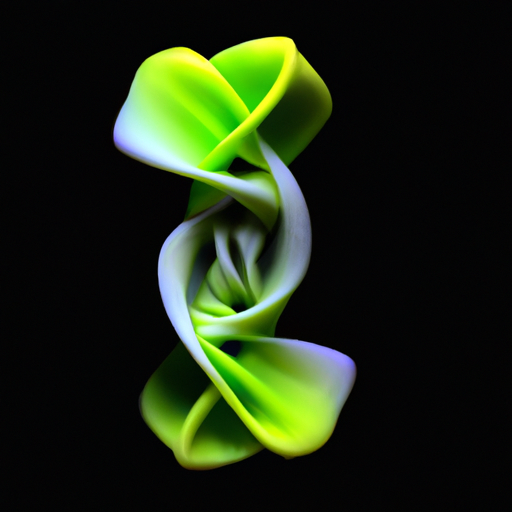In the fascinating world of cosmology, the question of whether the universe is finite or infinite has long captivated the minds of scientists and philosophers alike. As we delve into the depths of this intricate subject, we find ourselves contemplating the mysteries of time and space. Are we bound by the limitations of a finite universe, or are there infinite possibilities awaiting our exploration? Join us on this thought-provoking journey as we unravel the enigma of cosmology and attempt to grasp the true nature of time in the vast expanse of the universe.
Introduction
Welcome to an exploration of the fascinating field of cosmology and the nature of time! In this article, we will delve into the concepts of time, the study of the universe, and the age-old question of whether the cosmos is finite or infinite. Prepare to embark on a journey through the vast cosmic expanse and unravel the mysteries that lie within.
The Nature of Time
Definition of Time
Time is a fundamental aspect of our existence, dictating the order and progression of events. It is an abstract concept that allows us to measure and perceive the passage of moments. While time is deeply ingrained in our everyday lives, defining it precisely can be a challenging task. In essence, time is the indefinite continued progress of existence and events.
The Arrow of Time
One curious aspect of time is its directionality, often referred to as the “arrow of time.” It describes the concept that time seems to flow forward in a straightforward manner, from past to present and onward into the future. This arrow of time is intimately connected with the concept of causality, where events in the past influence those in the future but not vice versa.
Time in Physics
Within the realm of physics, time takes on a different perspective. It becomes intertwined with space, forming the fabric of the universe known as spacetime. The theories of special and general relativity introduced by Albert Einstein revolutionized our understanding of time. According to these theories, the flow of time can be affected by gravity and motion, leading to phenomena such as time dilation.

Cosmology: The Study of the Universe
Introduction to Cosmology
Cosmology is the scientific study of the origin, structure, and evolution of the universe as a whole. It encompasses a broad range of disciplines, including astronomy, physics, and mathematics. By observing celestial objects and analyzing their properties, cosmologists aim to unravel the mysteries of our cosmic home.
The Big Bang Theory
One of the key pillars of modern cosmology is the Big Bang theory. According to this widely accepted model, the universe originated from an incredibly hot and dense state approximately 13.8 billion years ago. This pivotal event marked the beginning of the expansion of spacetime and the subsequent evolution of the universe as we know it.
Expansion of the Universe
Observations of distant galaxies have provided substantial evidence for the expansion of the universe. The famous Hubble’s Law states that the farther away a galaxy is from us, the faster it appears to be moving away. This observation led to the realization that space itself is expanding, causing galaxies to recede from one another.
Cosmic Background Radiation
One of the most compelling pieces of evidence supporting the Big Bang theory is the existence of cosmic background radiation. This faint radiation permeates the entire universe and is considered a “relic” of the early universe. Its discovery in 1964 by Arno Penzias and Robert Wilson was a pivotal moment in cosmology, providing strong support for the idea of a hot, dense beginning of the cosmos.
The Cosmos: Finite or Infinite?
Early Beliefs
Throughout history, different civilizations and cultures have held varying beliefs about the nature of the cosmos. Some ancient societies perceived the universe as a finite and bounded entity, encapsulated within a celestial sphere. Others envisioned an infinite and eternal cosmos, in which the vastness of space extended infinitely in all directions.
The Infinite Universe
The concept of an infinite universe gained traction with the advent of Copernican heliocentrism, which placed the Sun at the center of the solar system. This shift in perspective challenged the notion of a finite universe and opened up the possibility of an infinitely expanding cosmic expanse.
The Finite Universe
However, the idea of a finite universe has also been postulated by various scientists and thinkers throughout history. Some argue that the observable universe, the portion of the universe that we can currently observe, may have a boundary or a finite extent. This notion is supported by theories in modern cosmology, as we will explore in the following sections.
The Shape of the Universe
The question of whether the universe has a definite shape is closely linked to its finite or infinite nature. In the late 20th century, scientists proposed several possible shapes for the universe, including a closed, flat, or open geometry. Determining the shape of the universe is a complex task that requires extensive observations and precise measurements.

Evidence for a Finite Universe
Observable Universe
The observable universe refers to the portion of the universe that we can currently see and interact with. Due to the finite speed of light, we are limited to observing objects within a certain radius from our vantage point. While the observable universe is vast, it is finite, suggesting that the universe itself may also have a finite extent beyond our observational limits.
Cosmic Microwave Background
The cosmic microwave background (CMB) radiation, as mentioned earlier, provides further evidence for a finite universe. This radiation is isotropic and homogeneous, suggesting that it originated from a single event, namely the Big Bang. The CMB gives us a snapshot of the universe as it appeared roughly 13.8 billion years ago, supporting the idea of a finite beginning.
Dark Matter
The presence of dark matter within the universe is another indication of a finite cosmos. Dark matter, a mysterious form of matter that does not interact with light, is thought to make up a significant portion of the total mass of the universe. Its gravitational effects on visible matter suggest that the universe has a finite mass, reinforcing the notion of a finite universe.
Cosmic Inflation
The theory of cosmic inflation proposes that the universe underwent a rapid expansion phase shortly after the Big Bang. This inflationary period helps explain several observed features of the universe, such as its overall homogeneity and the absence of certain predicted relics. While the details of cosmic inflation are still being investigated, its occurrence supports the concept of a finite universe.
Theories on an Infinite Universe
Infinite Density
One theory proposing an infinite universe is based on the idea of infinite density. According to this viewpoint, if the universe has always existed, its density has been accumulating indefinitely, leading to an infinite amount of matter and energy. However, resolving the infinite density conundrum requires a deeper understanding of the fundamental nature of spacetime and matter.
Multiverse Theory
The concept of a multiverse suggests that our universe may be just one among many universes. In this scenario, each universe could have different physical properties and laws of nature. Some proponents of the multiverse theory argue that this multiplicity of universes could lead to an infinite variety of cosmic structures, supporting the idea of an infinite cosmos.
Eternal Inflation
Eternal inflation is a recent proposal that combines inflationary cosmology with the possibility of an infinite universe. According to this theory, the universe is in a state of eternal expansion and inflation, continuously creating new regions that could potentially evolve into separate universes with their own physical laws. This scenario opens up the possibility of an everlasting, infinite cosmos.
The Challenge of Understanding Time
Philosophical Perspectives
The nature of time has long been a subject of philosophical contemplation. Various philosophical schools of thought have grappled with its definition and understanding. Questions regarding the nature of time’s flow, its relation to causality, and its connection to human consciousness are just some of the intriguing philosophical aspects that continue to challenge our understanding.
Relativity and Time Dilation
Albert Einstein’s theory of relativity revolutionized our understanding of spacetime and its connection to time. The theory predicts that time can be dilated or stretched depending on an object’s speed or proximity to a massive gravitational field. This phenomenon has been confirmed through experiments and observations, highlighting the intricacies of time and its relationship to physical processes.
Quantum Mechanics and Time
At the microscopic level of quantum mechanics, time takes on a different character. The formalism of quantum mechanics does not treat time as an independent variable but rather as a parameter within the mathematical description. The concept of “quantum time” is still under investigation, with ongoing research aiming to bridge the gap between the macroscopic and quantum realms.
Time and the Arrow of Entropy
Entropy and Disorder
Entropy, a concept closely related to the arrow of time, is a measure of the disorder or randomness within a system. The second law of thermodynamics states that in a closed system, entropy tends to increase over time. This increase in entropy provides a directionality to time, leading to the familiar progression from a highly ordered state, such as the Big Bang, to a more disordered and chaotic state.
Entropy and Time’s Direction
The arrow of time is closely linked to the increase of entropy within the universe. The asymmetry between the past and the future arises from the observation that the universe started in a low entropy state (the Big Bang) and has been progressing towards higher entropy ever since. This directionality of time is deeply rooted in the laws of thermodynamics and has profound implications for the ultimate fate of the universe.
Relating Time to the Universe’s Fate
The concept of time is intricately intertwined with the fate of the universe. The prevailing hypothesis suggests that the universe will continue to expand indefinitely, leading to a state of cosmic dilution and eventual heat death. As time progresses, the universe will become increasingly vast and devoid of usable energy, resulting in a lifeless expanse governed solely by the arrow of entropy.
The Future of Cosmology and Time
Advancements in Observational Techniques
As technology advances, our ability to observe and explore the universe continues to improve. Powerful telescopes, space missions, and advanced detectors are allowing us to probe deeper into the cosmic tapestry. From mapping the cosmic microwave background to detecting the faintest cosmic signals, these advancements hold the promise of uncovering new insights into the nature of time and the universe.
Exploring Dark Energy
Dark energy, an enigmatic form of energy that drives the accelerated expansion of the universe, remains one of the greatest mysteries in cosmology. Scientists are actively investigating the nature of dark energy, hoping to shed light on its origins and its role in shaping the evolution of the cosmos. Unraveling the mysteries of dark energy could provide valuable clues about the ultimate fate of the universe and the nature of time.
Unraveling the Nature of Time
The nature of time continues to captivate scientists and philosophers alike. The ongoing exploration of relativity, quantum mechanics, and thermodynamics is gradually unravelling some of the deepest mysteries surrounding time. As our understanding of the universe expands, so does our comprehension of the nature of time, bringing us closer to one of the most profound enigmas of existence.
Conclusion
In this comprehensive exploration of cosmology and the nature of time, we have traversed the realms of physics, philosophy, and our collective understanding of the universe. From the definition of time itself to the interplay between relativity and quantum mechanics, we have journeyed through the vast cosmic expanse and pondered the age-old question of whether the universe is finite or infinite. While the quest for answers persists, the future of cosmology holds immense potential for unraveling the mysteries that lie within the fabric of time and space.